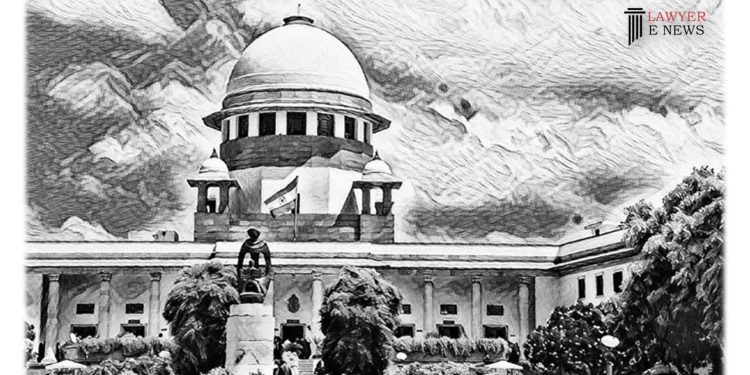-
by Admin
16 February 2026 1:47 PM



In a significant judgment, the Supreme Court of India has converted the conviction of Jasbir Singh, the appellant, from murder to culpable homicide not amounting to murder. The court observed that the complainant party was found to be the aggressors in the case. The judgment was delivered by a bench comprising Justices B.R. Gavai and Vikram Nath.
The appellant, along with five other accused, was convicted by the Sessions Judge under Section 302 read with Section 149 of the Indian Penal Code (IPC) and sentenced to rigorous imprisonment for life. However, the High Court of Punjab and Haryana dismissed the appeal filed by the appellant, upholding his conviction while acquitting the other accused.
The Supreme Court, after careful consideration of the facts and circumstances, held that the conviction under Section 302 IPC was not sustainable. It relied on the defense version presented by the appellant, wherein he claimed self-defense. The court noted that the appellant and his companions were attacked by the complainant party, and the appellant fired in self-defense. The High Court also found the defense version to be more probable and established that the complainant party were the aggressors.
"The defence version is more probable where Jasbir Singh appellant has stated that it was the complainant party who attacked him and his companions and he fired in self-defense. Appellants have explained their conduct, that everything was done in self-defense. It has been admitted by both the witnesses Sohan Singh PW-10 and Jaswant Singh PW-11 that the land was in possession of the appellants and they are the ones who had sown the crop. Complainant, in fact, are the aggressors," observed the High Court in its judgment.
The Supreme Court further emphasized that the response of a person faced with aggression from a large group armed with lathies (sticks) may differ, and it cannot be assumed that the appellant would not use firearms in self-defense. Accordingly, the court held that the appellant was entitled to the benefit of Exception 2 of Section 300 IPC, which pertains to the right to private defense.
Consequently, the Supreme Court converted the appellant's conviction from Section 302 IPC to Part I of Section 304 IPC, which deals with culpable homicide not amounting to murder. However, the conviction under Section 307 IPC (attempt to murder) was upheld.
Taking into account the period of approximately five years already served by the appellant, the court deemed it sufficient punishment for the offenses under Section 304 Part I IPC and Section 307 IPC. Therefore, the appellant was sentenced to the period of incarceration already undergone.
The judgment brings clarity to the case and highlights the importance of considering the right to self-defense in situations where the accused faces aggression from a group. The court's observations regarding the aggressor party have far-reaching implications for cases involving similar circumstances.
Date of Decision: January 19, 2023
JASBIR SINGH VS THE STATE OF PUNJAB
